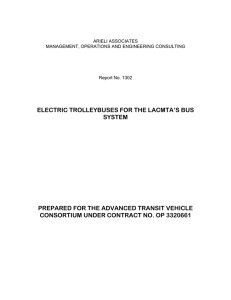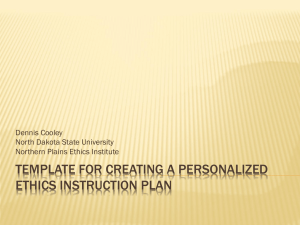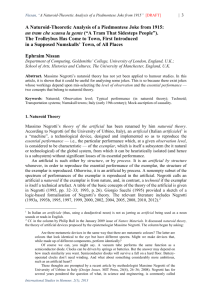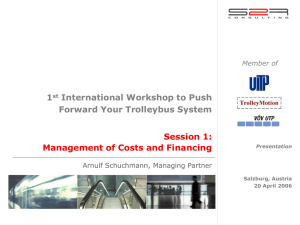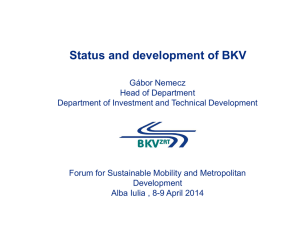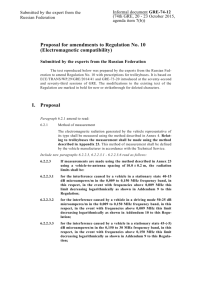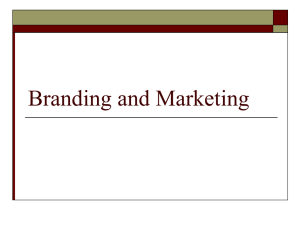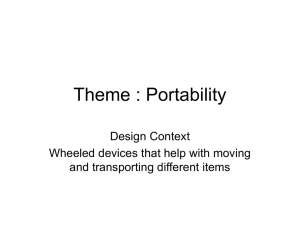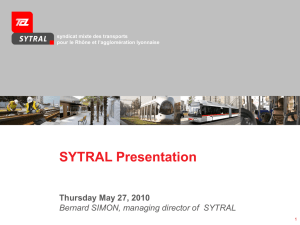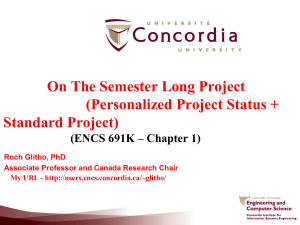TROLLEY Marketing Symposium
advertisement
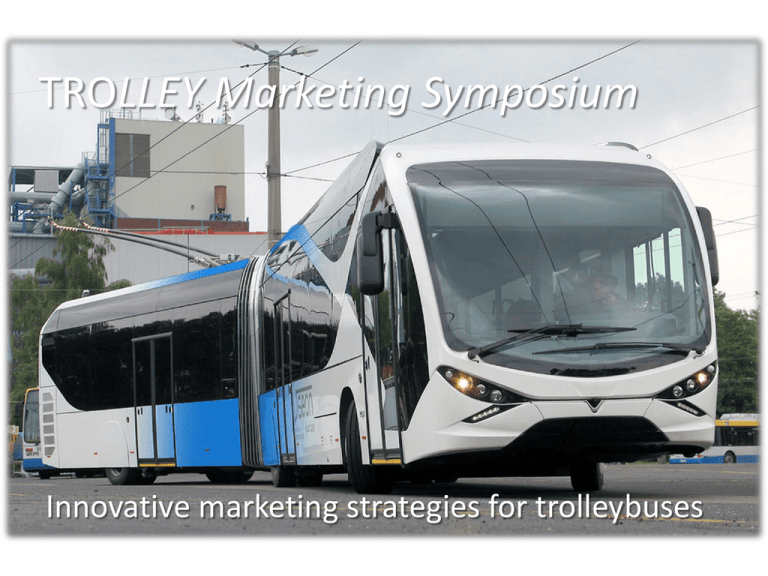
TROLLEY Marketing Symposium Innovative marketing strategies for trolleybuses Why? There can be a number of reasons why a marketing strategy for trolleybuses might be necessary. They assume the trolleybus is the answer, but what is the question? • • • • traffic congestion street level air pollution public service quality of life Qualities That the trolleybus can solve or provide these attributes assumes a number of qualities • • • • • • • inherent attractiveness zero emissions at street level inherently high acceleration and load capacity inherent quietness and smoothness lack of vibration long life proven technology Why not? There are reasons why the trolleybus has not achieved more widespread use – • perception by planners and less so, the public, of visual intrusion of overhead wiring • idea that trolleybus technology is somehow ‘out-of-date’ • higher up-front capital costs • short term accountancy methods • perception of inflexibility • assumption of higher maintenance costs Alternatives Against this background is the climate crisis and peak oil, both of which are global and intangible events that have no precedent in planning. As future predictions, their effects can be contested but they are inevitable over time. Proposals for technologies to deal with these threats have been short term or impractical. • • • • battery buses incapable of providing high service levels hybrids that still require fossil fuels CNG buses that still emit greenhouse gases onboard fuel cells that can never be energy efficient Wider Benefits So there is a certain inevitability that trolleybus technology will have to be re-introduced on a large scale and include new uses such as trolley lorries and long distance trolley coaches. Decisions about the quality of the trolleybus system need to consider wider benefits than are usually taken into account. • • • • regeneration wider community economics public health global crisis's Marketing In marketing ‘new’ trolleybuses, it might be useful to conceive the system differently than is usually the case. • • • • • as the future solution as a ‘new’ technology concept as a total, integrated system at the top of the hierarchy of road users as high quality Implementation While none of these is strictly true or unique to trolleybuses, seeing the concept in this way can form a positive basis for interpretation into a visual identity and system design. The cost implications scale from little extra outlay to judgements of the extent of implementation. • • • • • branding additional passenger services service frequency maintenance and Renewal traffic segregation Branding Branding has ranged from perfunctory identification through self advertising to a friendly brand that can involve a name such as ‘Stan’, ‘TVRcas’ or ‘Tide’. Public consultation is essential to achieve acceptance and ‘ownership’. • • • • • simple sophisticated elegant functional key messages, green and quality Planning Impression • • • • • • • • • fresh, clean, efficient target – car users promote quality promote environmentalism single word theme, eg. ‘cloud’ new vernacular, gliding on a cloud no written graphics on vehicles graphic emblems for trolley ways visual coherence Vision • glide a cloud Thanks to Marcus Fey and Viseon
